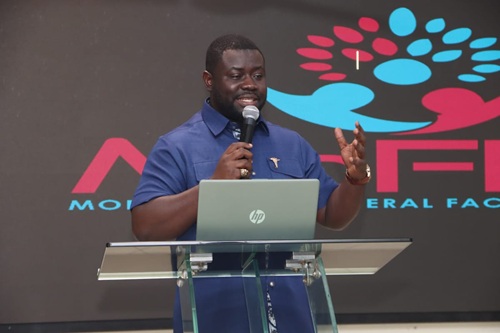The Mortuaries and Funeral Facility Agency (MOFFA), the regulatory body for Ghana’s “death care industry,” is set to conduct its first-ever practical licensure examination by the end of the year.
Currently, no funeral home—whether private or government-owned—in Ghana holds a license to operate in the death care industry.
This concerning situation has prompted MOFFA to establish a training school at Pentecost University in Accra to equip operators with the necessary knowledge and skills.
Discussions are also ongoing with other universities to expand the scope of training. Graduates from the programme will be required to demonstrate practical knowledge of industry operations, complemented by a minimal academic presentation.
A law to regulate the industry was enacted in 2011 but only became operational in 2019.
The agency, established under the Health Institutions and Facilities Act (Act 829) on December 31, 2011, is responsible for licensing, controlling and regulating facilities connected with the storage, transportation and disposal of human remains.
This includes the bodies of deceased persons, stillborn children, and parts of bodies removed during surgical operations.
MOFFA is empowered by law to issue licences exclusively to qualified members.
However, the enforcement of these regulations has been weak, leading to the introduction of reforms such as the upcoming licensure exams to streamline activities within the industry.
Speaking at a dissemination event for inspection tools for death care operators in Accra. The Registrar of MOFFA, Dr Yaw Twerefour, revealed that as of 2022, only 17 facilities had been captured in MOFFA’s records.
This number increased to 125 in 2023, but Dr Twerefour noted that that figure did not reflect the actual number of existing facilities.
In response, a team of experts, including pathologists, doctors and industry stakeholders, have developed globally accepted tools to standardise operations in the death care industry.
About 40 certified MOFFA officers have visited several funeral homes to share these tools, which are now mandatory for operation.
Dr Twerefour explained the inspection process, saying, “The inspection is where a facility, having successfully gone through the registration process, submits itself for assessors from the Agency or its representatives to visit and check if the facility can be judged as ready to operate or can continue to operate if it is a pre-existing facility.”
Facilities that fail to meet the requirements will be given two months to address deficiencies or agree on a timeline with the regulator. Failure to comply may result in a shutdown.
Dr Twerefour emphasised, “Because of the long period of compliance absence, we are prepared to give adequate time for all to come on board, after which we will begin to bite.”
The policy is part of a broader initiative to train specialists—mainly pathologists—and eliminate charlatans from the industry.
MOFFA is also in talks with the Korle Bu Teaching Hospital to construct a 1,000-capacity mortuary under a build-operate-transfer agreement with a private entity.
During the event, MOFFA’s Lead Investigator, Emmanuel Okyere, outlined the basic requirements for facilities to be sanctioned.
These include establishing advisory boards, strategic and annual plans, and performance audit reports.
Facilities must implement policies for training and appraisal systems, demonstrate waste disposal programmes, ensure workers are vaccinated against diseases such as COVID-19, and adopt protocols for managing the spread of diseases.
MOFFA’s efforts signal a major step forward in regulating Ghana’s death care industry and ensuring professionalism and safety for operators and the public alike.










Discussion about this post